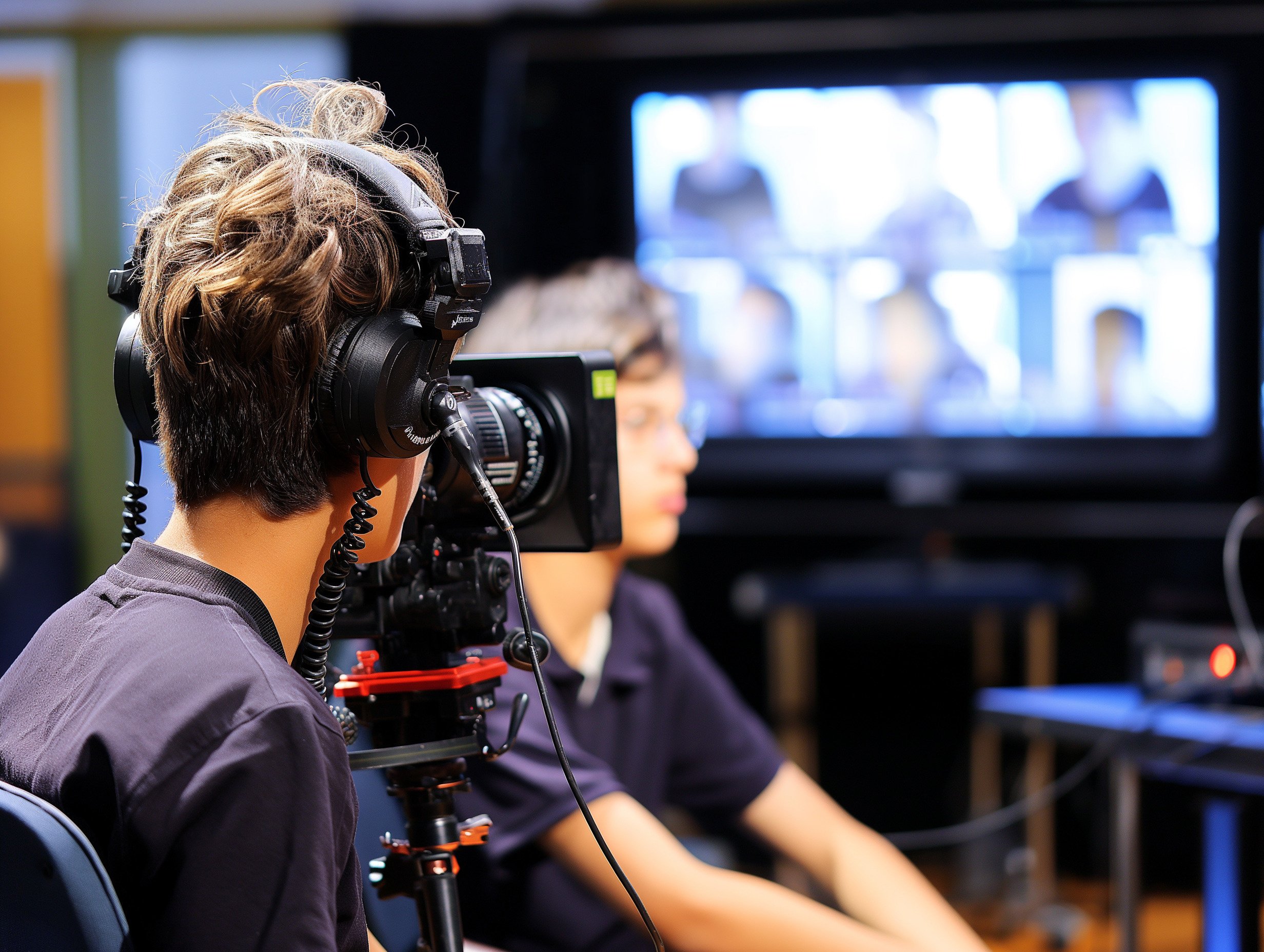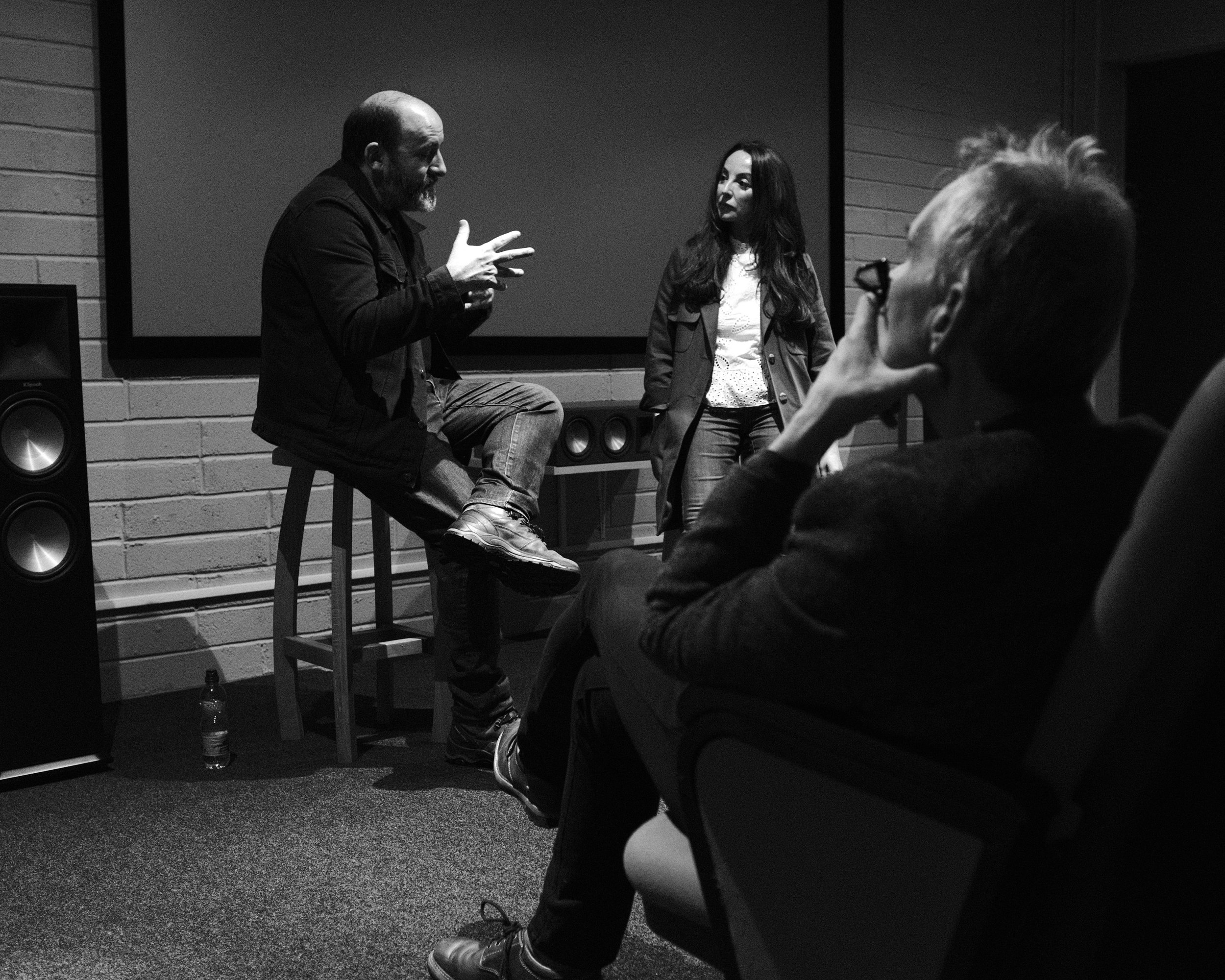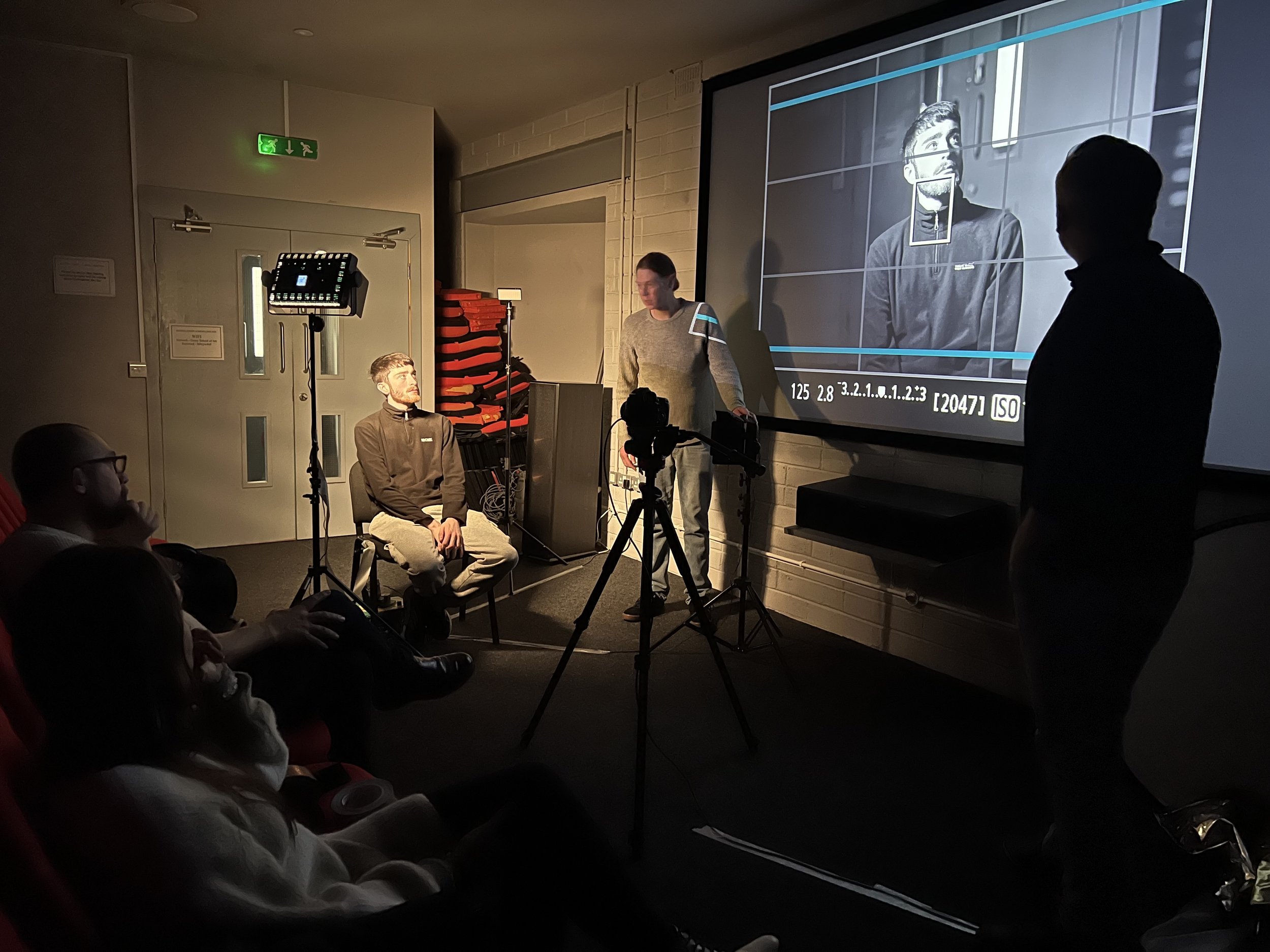
QQI LEVEL 6
Film & Photography
Course Details
QQI Level 6
Full-time (09.30 - 16.30, Mon. - Fri.)
Places: 35
Start Date: 15/09/2025
Finish Date: 15/05/2026
Deposit/Registration Fee: €50
Interview Required
Summary
This full-time course is your perfect opportunity to explore the captivating world of storytelling through both contemporary cinema and photography. Not only will it give you a whole year dedicated to honing your skills in these art forms, but it also provides invaluable support for developing a portfolio that can be used for college or job applications later on.
The course gives students access to specialised degree tracks such as TV & Film, Photography, Fine Art, Media Communications, Journalism, Design for Screen & Stage and Film History. With this comprehensive programme of study at hand, they will gain all the knowledge needed to make confident and successful applications in their future endeavours.
-
Title: Film and Television Production
Code: 6M18534
Level: 6
Type: Major
-
On this course, students will learn the fundamentals of writing, producing, directing, and editing a short documentary. They will explore the history of documentary production as well as episodic and feature-length scripts. Students will gain experience working in roles such as director, producer, cinematographer, sound mixer and editor on student productions.
This course provides an in-depth experience with digital video cameras, Digital SLR cameras and sound recording equipment. Moreover it covers photography editing software to reach a professional standard for video editing with knowledge of sound design techniques to complete and enhance their final documentaries.
Students also acquire aesthetic film theory knowledge along with documentary ethics which can be applied practically when needed. In addition to that they develop the ability to work both independently or collaboratively in a high pressure creative environment under tight deadlines while maintaining quality standards throughout their projects.
-
Experiment with diverse filmmaking techniques, from camera operation and lighting to sound recording and editing, building a versatile filmmaking portfolio.
Develop your unique filmmaking voice through personalised guidance and hands-on projects, unlocking your storytelling vision.
Learn the essential skills to showcase your films professionally and impress admissions panels or potential clients, crafting a standout filmmaking portfolio.
Gain invaluable feedback and support from experienced filmmakers and industry professionals through expert mentorship and collaborative critiques.
Discover new cinematic approaches and technologies, fostering a deeper understanding of your filmmaking potential and exploring your passion for visual storytelling.
Build the confidence and skills needed to progress to film school, university film programmes, or launch your filmmaking career, preparing for future success in the film industry.
-
6N5427 Editing Practice and Techniques
6N5428 Film and Digital Video Production
6N18514 Documentary Production
6N5452 Film and Television Camera and Lighting
6N3589 Digital Photography
6N3449 Fine Art Photography
6N1949 Personal and Professional Development
6N1946 Work Experience
-
From this course, students are eligible to apply to 1st Year AND/OR 2nd Year of Level 7 and Level 8 degree courses. Below are our students most popular direct/advanced entry progression routes into 1st and 2nd Year. This course will also provide progression into employment within the film and television industry.
-
Applicants will provide a record of their education attainment to date. It is essential that an applicant has completed the leaving cert and has achieved a minimum of D3 on the ordinary level English paper.
Applicants will be expected to attend an interview, where an informal assessment will take place to choose suitable candidates for the course. This course will require individuals who can work effectively and productively as part of a team.
Firstly the interviewers will be looking for applicants who have completed the leaving certificate or are over the age of 23. Successful applicants will have a mature attitude and will also be competent with computers, preferably Macs. Applicants should be passionate about the world around them. During the interview, each applicant will be asked to demonstrate their interest in lens based media i.e. TV, Film, Photography etc., with particular emphasis being placed on documentaries. About 20% of this course focuses on writing, scripting and presenting. As a result, the ideal applicant would have a good command of the english language.
-
It is expected that the learner availing of this programme will come from diverse social, economic and/or cultural backgrounds. The learner may have an existing vocationally specific skillset and seek reskilling/upskilling in order to reenter the workforce. The learner may have previously achieved certification at NFQ level 5. However if the learner has not achieved a previous formal qualification, it is expected that s/he will be able to demonstrate the levels of knowledge, skill and competence associated with the NFQ level 5 when accessing this programme.
The learner will be self motivated and have the ability to apply theoretical concepts within his/her chosen field of learning. It is expected that s/he will have a range of learning styles, strengths and needs related to the programme.
The learner will have expressed an interest in working in a supervisory capacity in their chosen vocational area and will have the capacity to work autonomously, take responsibility for the work of others in the workplace and assist others in identifying learning needs.
In order for the learner to have a realistic chance of achieving the standard of a level 6 award, it is expected that the learner should be able to:
Fluently read, draft, prepare and understand complex information that is personally relevant and reflects a broad knowledge base, for example, text and other information relating to abstract theoretical ideas, concerns or procedures
Fluently read, draft, prepare and understand complex quantitative information
Assume full responsibility for consistency of self understanding and behaviour
Solve problems, independently and as part of a range of different groups
Demonstrate the use of a broad range of specialised skills and tools
Act with substantial responsibility and autonomy
Attend timetabled classes for the duration of the programme
Complete self directed hours of learning in the form of practice time, preparation, study time and reflection time, as appropriate
Participate in all programme related activities
Participate in work experience, as appropriate
Showreel










